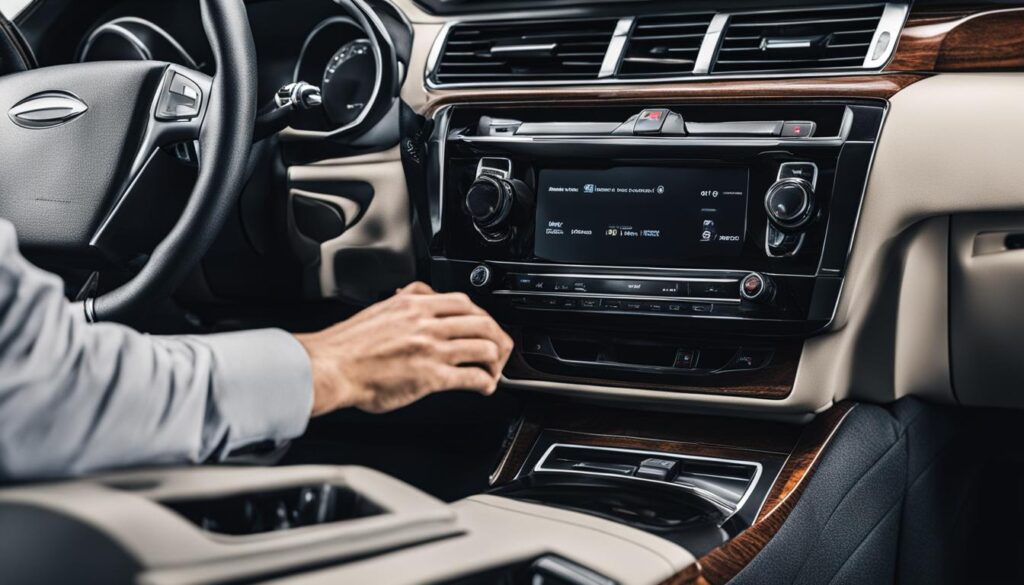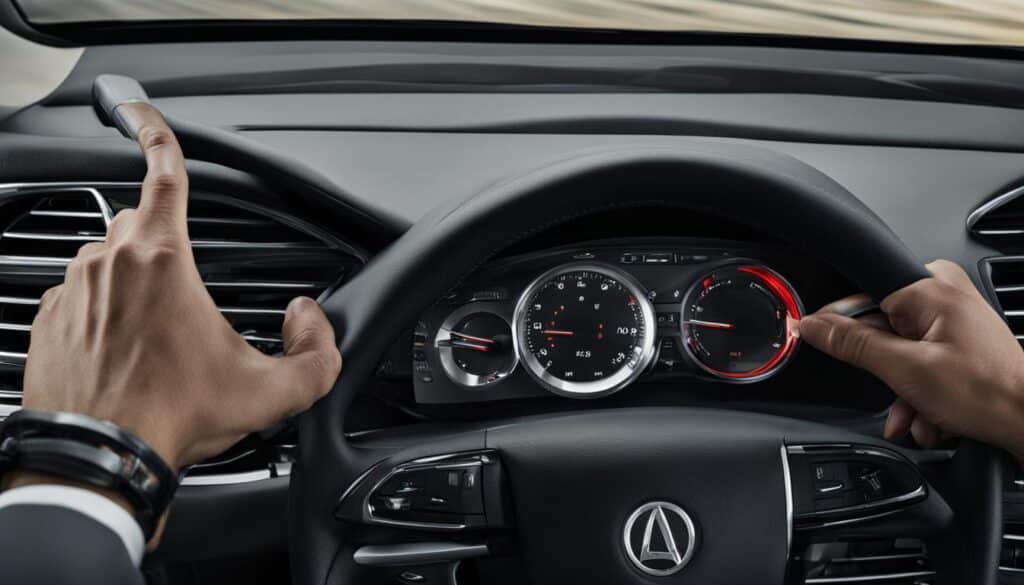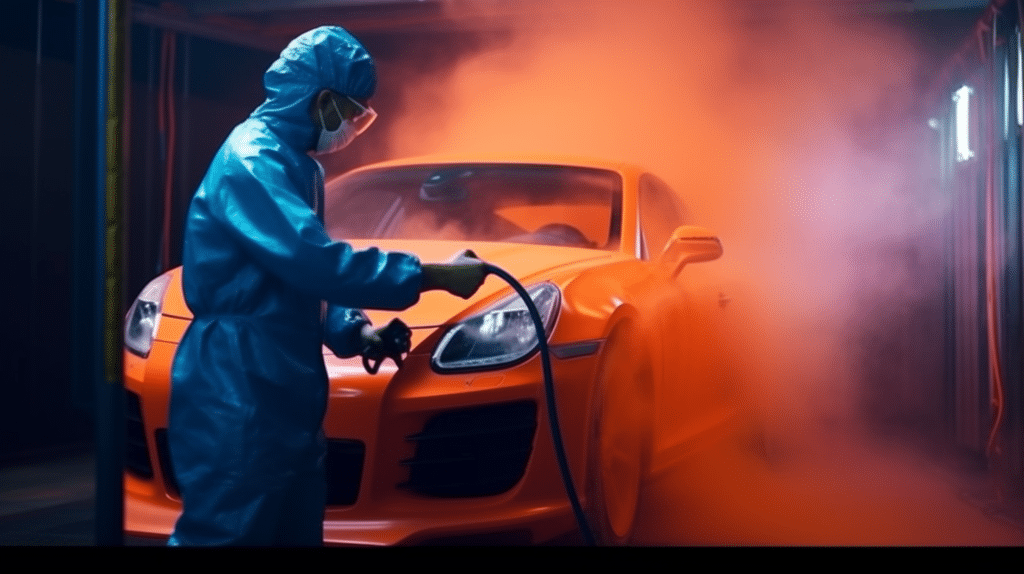Are you experiencing issues with your car’s AC system? Don’t let the scorching heat affect your comfort while driving. I’m here to provide you with expert tips on troubleshooting common car AC problems so that you can stay cool on the road.
Key Takeaways:
- Common car AC issues include not cooling, blowing hot air, not working, compressor problems, leaks, fan not working, weak airflow, and not turning on.
- Inspect and test various components of the AC system before replacing them to diagnose and fix the problems effectively.
- If your AC is not cooling, it could be due to refrigerant leaks. Adding a fluorescent leak tracer dye and refrigerant can help identify and repair the leak.
- For issues like no air coming from the vents, check for blown fuses, damaged blower motors, blocked air intakes, or damaged belts and hoses.
- Regular maintenance and preventive measures can help prevent major AC problems. However, seek the expertise of a professional technician for complex issues or if DIY troubleshooting doesn’t solve the problem.
Common Car AC Issues and Solutions
Car air conditioning (AC) problems can be frustrating, especially during hot summer months. Understanding the common issues that can arise with car AC systems is crucial for troubleshooting and finding effective solutions. Here are some of the most frequent car AC issues along with their possible causes and solutions:
Lack of Cooling
One common problem car owners encounter is their AC not cooling the air properly. This can be attributed to low refrigerant levels caused by leaks in the system. Over time, seals and hoses can deteriorate, allowing refrigerant to escape. When refrigerant levels are insufficient, the AC system cannot generate cool air efficiently.
It is essential to address refrigerant leaks promptly to restore proper cooling. A professional technician can perform a thorough inspection of the AC system, identify the location of the leak, and repair it. This typically involves replacing damaged seals or hoses and recharging the refrigerant to the recommended levels.
AC Blowing Hot Air
Another common issue is the AC blowing hot air instead of providing cool relief. Several factors can contribute to this problem, including compressor issues, condenser malfunctions, or problems with the expansion valve.
Proper diagnosis and repair by a professional technician are necessary to determine the exact cause and recommend the appropriate solution. They may need to inspect and test the AC compressor, condenser, and expansion valve to identify any faults or failures. Performing the necessary repairs or replacements will help restore the AC’s ability to cool the air effectively.
AC Not Working at All
When the car’s AC fails to work entirely, there are several potential causes that warrant investigation. A failed AC clutch, power supply issues, or a broken circuit wire can all contribute to a non-operational AC system.
The complexity of these issues requires the expertise and diagnostic equipment of a professional technician. They can perform electrical tests, inspect the AC clutch, and check for any wiring faults. Based on their findings, they can recommend the most suitable repairs, whether that involves replacing the AC clutch, repairing electrical connections, or resolving power supply issues.
Other Common Car AC Issues
Aside from the aforementioned problems, car AC systems can also experience other issues that affect their performance. These may include:
- Compressor problems
- Refrigerant leaks
- Fan motor failures
- Weak airflow
- AC not turning on
Each of these problems requires proper diagnosis and repair by a qualified technician. They have the knowledge and tools to identify the underlying causes and implement effective solutions. Neglecting these issues can lead to further damage to the AC system and potentially more expensive repairs.
To avoid car AC problems and keep the system running smoothly, regular maintenance is key. This includes checking refrigerant levels, inspecting seals and hoses for leaks, and ensuring proper operation of the AC compressor, condenser, and expansion valve.
“Understanding common car AC issues and promptly addressing them can help car owners enjoy cool and comfortable rides even on the hottest days.”
Troubleshooting Tips for Car AC Problems
If your car’s AC is not cooling properly, it can be a frustrating experience, especially during hot summer months. Fortunately, there are several common issues that can be easily diagnosed and resolved. By following these troubleshooting tips, you can identify the root cause of your car’s AC problem and take appropriate action.
Refrigerant Leak: Why Your Car AC Is Not Cooling
If your car AC is not cooling, a refrigerant leak might be the culprit. The refrigerant is responsible for absorbing heat from the air inside your car and releasing it outside. When there is a leak, the refrigerant level drops, resulting in ineffective cooling.
To identify and repair the leak, you can add a fluorescent leak tracer dye and refrigerant to the AC system. The dye will circulate through the system, making it easier to pinpoint the exact location of the leak. Once identified, the leak can be fixed, and the refrigerant can be recharged to restore proper cooling.
No Air From Vents: Potential Causes and Solutions
Another common AC problem is when no air is coming from the vents. This can be caused by a variety of issues, such as:
- Blown fuses
- Bad relays
- Damaged blower motors or resistors
- Blocked air intakes
- Damage to belts and hoses
To address these issues, you can start by checking the fuses and relays related to the AC system. If any are blown or faulty, they can be replaced. Additionally, inspect the blower motors and resistors for any signs of damage. Clear any blockages from the air intakes and examine the belts and hoses for any wear or tears. If necessary, have them repaired or replaced to restore proper airflow.
Air Not Getting Cold: Possible Culprits
If your car’s AC is blowing air that isn’t cold, there are a few potential causes to consider:
- Low refrigerant levels
- Issues with the condenser
- Faulty clutch switch
Low refrigerant levels can be addressed by recharging the system with the correct amount of refrigerant. If there are issues with the condenser or clutch switch, it’s best to consult a professional technician for proper diagnosis and repair.
Foul Smell and Other Indications of AC Problems
Aside from cooling issues, other signs of AC problems include a foul smell from the vents, unusual noises, water on the floorboards, and fluctuating temperature. A foul smell is often caused by bacterial growth in the AC system, which can be addressed by replacing the air filter and using an anti-bacterial solution.
Unusual noises, water leakage, and fluctuating temperature are indications of underlying AC problems that require immediate inspection and repair by a professional technician.

Remember, troubleshooting car AC problems can sometimes be complex, and it’s important to have the expertise of a professional automotive technician when needed.
Conclusion
Identifying and resolving car AC problems is crucial to ensure a comfortable driving experience. By understanding common issues like refrigerant leaks, compressor failures, fan motor issues, and more, car owners can troubleshoot AC problems effectively.
Regular maintenance plays a significant role in preventing major AC issues. Simple tasks like replacing the air filter regularly and checking for leaks can help keep the AC system running smoothly. However, it’s important to note that for more complicated problems or if DIY troubleshooting doesn’t solve the issue, it’s recommended to seek the expertise of a professional automotive technician.
A professional technician has the knowledge, experience, and specialized tools to diagnose and fix complex AC problems. They can accurately identify the underlying issues and provide appropriate solutions, ensuring the AC system is restored to its optimal performance. Don’t hesitate to consult with a trusted technician to safeguard your driving comfort and enhance your overall experience on the road.
FAQ
What are the common car AC issues?
The common car AC issues include lack of cooling, AC blowing hot air, AC not working, compressor problems, refrigerant leaks, fan motor failures, weak airflow, and AC not turning on.
Why is my car AC not cooling?
Your car AC may not be cooling due to low refrigerant levels caused by leaks in the system.
What can cause the AC to blow hot air?
The AC blowing hot air may be caused by issues with the compressor, condenser, or expansion valve.
Why is my car AC not working?
Your car AC may not be working due to a failed AC clutch, power supply issues, or a broken circuit wire.
How can I fix a refrigerant leak in my car AC?
Adding a fluorescent leak tracer dye and refrigerant to the system can help identify and repair the leak.
What can cause no air to come from the vents?
Potential causes include blown fuses, bad relays, damaged blower motors or resistors, blocked air intakes, or damaged belts and hoses.
Why is the air not getting cold in my car AC?
The air not getting cold could be due to low refrigerant levels or issues with the condenser or clutch switch.
How can I eliminate the foul smell from my car AC vents?
The foul smell from the vents can be caused by bacterial growth, which can be resolved by replacing the air filter and using an anti-bacterial solution.
What can unusual noises, water on the floorboards, and fluctuating temperature indicate?
These symptoms can indicate AC problems and require inspection and repair by a professional.




